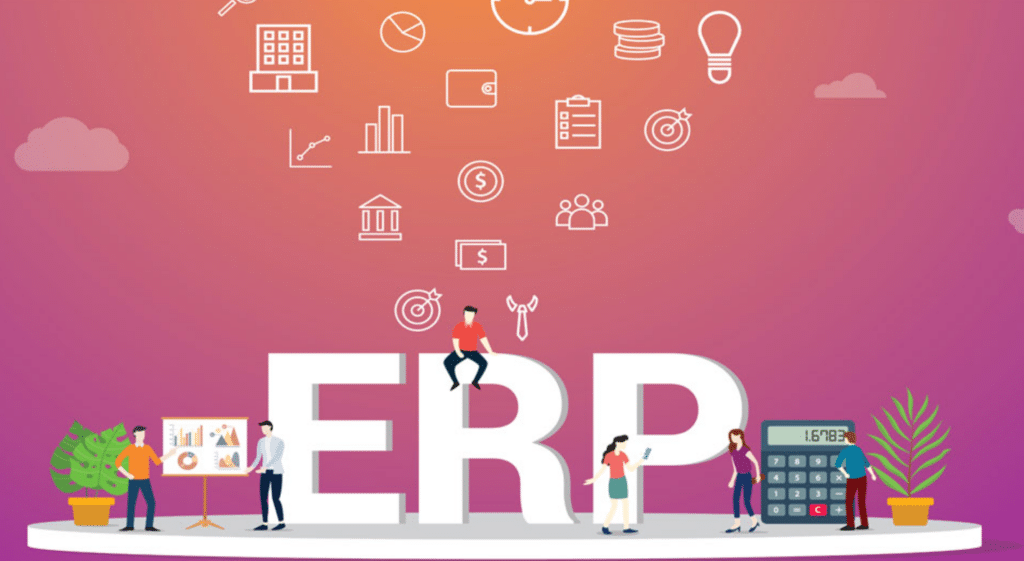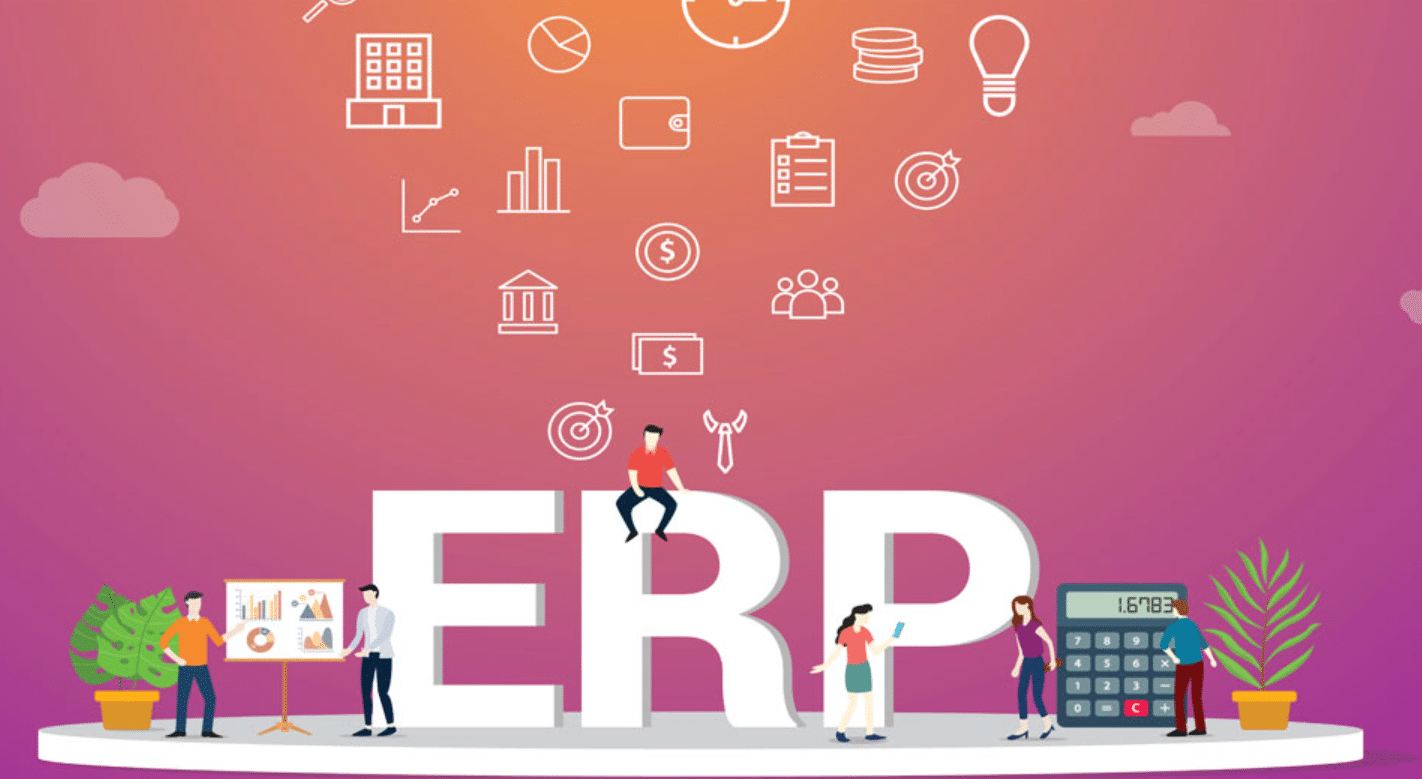The Best ERP Systems for Businesses in 2025 – In an ever-evolving business landscape, the efficiency and integration offered by Enterprise Resource Planning (ERP) systems have become indispensable. These systems consolidate various business processes, such as finance, human resources, supply chain, and customer relations, into a single unified system. Choosing the best ERP system for your business can significantly enhance operational efficiency and support strategic growth. In this article, we’ll explore the top ERP systems of 2025 and the unique features that set them apart.

What to Look for in an ERP System
Before diving into the best ERP systems, it’s essential to understand the criteria for evaluating these solutions. Here are some key factors to consider:
- Scalability: The ERP system should grow with your business, accommodating increasing data and user demands.
- Customization: Different businesses have unique needs; a flexible ERP system should allow for significant customization.
- User Experience: A user-friendly interface can increase adoption rates and reduce training costs.
- Integration: Seamless integration with existing software and systems is crucial.
- Cost: Both initial implementation costs and ongoing maintenance fees should fit within your budget.
Top ERP Systems in 2025
1. SAP S/4HANA
SAP S/4HANA continues to lead the ERP market with its powerful in-memory computing capabilities. It provides real-time analytics and insights, which are crucial for making informed business decisions. Its modular design allows businesses to adopt specific functionalities as needed, making it highly flexible.
Key Features:
- Real-time data processing
- Advanced analytics and reporting
- Seamless integration with other SAP products
- Cloud, on-premise, and hybrid deployment options
2. Oracle ERP Cloud
Oracle ERP Cloud is renowned for its comprehensive suite of applications that cover everything from financials and procurement to project management. Its AI and machine learning capabilities offer predictive insights and automation, reducing manual tasks and increasing efficiency.
Key Features:
- AI-driven analytics
- Comprehensive financial management tools
- Advanced procurement functionalities
- Strong security features
3. Microsoft Dynamics 365
Microsoft Dynamics 365 offers a versatile and scalable solution that integrates seamlessly with other Microsoft products like Office 365 and Azure. It is particularly favoured by businesses already within the Microsoft ecosystem. Dynamics 365 provides robust CRM and ERP functionalities, making it a comprehensive business solution.
Key Features:
- Seamless integration with Microsoft products
- Intuitive user interface
- Advanced CRM capabilities
- Flexible deployment options
4. Infor CloudSuite
Infor CloudSuite stands out with its industry-specific ERP solutions, making it an excellent choice for niche markets. Its cloud-based architecture ensures that businesses can access and manage their operations from anywhere. Infor’s use of AI and data analytics helps businesses optimize their processes effectively.
Key Features:
- Industry-specific solutions
- Cloud-native architecture
- AI and analytics integration
- User-friendly design
5. NetSuite ERP
NetSuite ERP by Oracle is a cloud-native solution designed for businesses of all sizes. It offers a wide range of functionalities, including financial management, inventory control, order management, and more. Its scalability and customization options make it suitable for growing businesses.
Key Features:
- Cloud-native design
- Comprehensive financial and inventory management
- Scalable and customizable
- Strong customer support
- Trends in ERP Systems
The ERP landscape is continually evolving. Here are some of the latest trends shaping the industry:
- Artificial Intelligence and Machine Learning: These technologies are becoming integral to ERP systems, providing predictive analytics, process automation, and enhanced decision-making.
- Cloud Adoption: More businesses are shifting to cloud-based ERP solutions for their flexibility, cost-efficiency, and remote accessibility.
- Mobile ERP: The demand for mobile ERP solutions is rising as businesses seek to manage their operations on the go.
- Enhanced User Experience: Modern ERP systems are focusing on providing a more intuitive and user-friendly interface to increase adoption rates.
- Integration with IoT: The Internet of Things (IoT) is being integrated into ERP systems to provide real-time data from physical devices, enhancing operational visibility and control.
Choosing the Right ERP System
Selecting the right ERP system for your business requires a thorough understanding of your specific needs and objectives. Here are some steps to guide you through the selection process:
- Assess Your Needs: Identify the key areas of your business that will benefit most from an ERP system.
- Research and Compare: Look into various ERP systems and compare their features, costs, and user reviews.
- Request Demos: Many ERP vendors offer demos or trial periods. Take advantage of these to see how the system works in practice.
- Consult with Stakeholders: Involve key stakeholders in the decision-making process to ensure the selected ERP meets the needs of all departments.
- Plan for Implementation: Ensure you have a detailed implementation plan, including timelines, budget, and resources.
Conclusion
Investing in the best ERP system for your business is a strategic decision that can drive significant improvements in efficiency and productivity. Whether you choose SAP S/4HANA, Oracle ERP Cloud, Microsoft Dynamics 365, Infor CloudSuite, or NetSuite ERP, it’s essential to select a solution that aligns with your business goals and provides the flexibility to grow with your organization. Stay informed about the latest trends and advancements in ERP technology to ensure your business remains competitive in the ever-changing market landscape.

